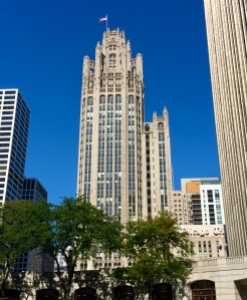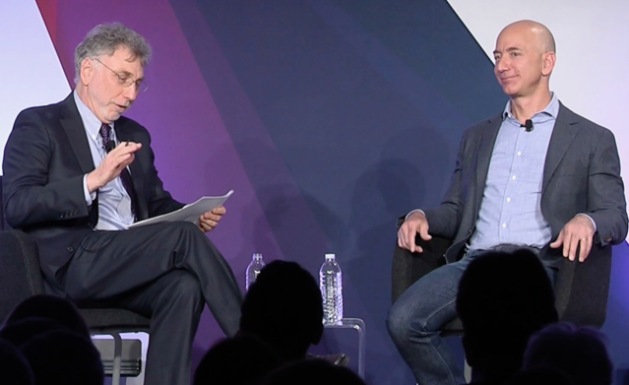
Patrick Soon-Shiong. Photo (cc) 2019 by the World Economic Forum.
It was quite a week for Patrick Soon-Shiong, the billionaire surgeon who owns the Los Angeles Times and The San Diego Union-Tribune.
On Tuesday came the news that the hedge fund Alden Global Capital was offering $630 million to boost its share of Tribune Publishing from 32% to 100%. Alden would take Tribune private and then, presumably, do what it does: slash the newsrooms of the Chicago Tribune, the Hartford Courant and others to ribbons. One unexpected benefit: The Baltimore Sun and several sister papers would be acquired by a nonprofit foundation.
The complicating factor was that Soon-Shiong, the second-largest Tribune shareholder at 24%, has the right to veto Alden’s acquisition. Would he? Probably not, guessed Poynter analyst Rick Edmonds. “I would bet that getting out with a good return on his investment will be Soon-Shiong’s main or sole objective,” Edmonds wrote.
Then, on Friday, came a bombshell. Lukas Alpert of The Wall Street Journal reported that Soon-Shiong was looking to get out of the newspaper business less than three years after he bought the Times and the Union-Tribune from Tribune’s absurdly named predecessor, tronc.
“The move,” Alpert wrote, “marks an abrupt about-face for Mr. Soon-Shiong, who had vowed to restore stability to the West Coast news institution and has invested hundreds of millions of dollars into the paper in an effort to turn it around.” Soon-Shiong denied it, tweeting, “WSJ article inaccurate. We are committed to the @LATimes.”
WSJ article inaccurate. We are committed to the @LATimes
— Dr. Pat Soon-Shiong (@DrPatSoonShiong) February 19, 2021
We are left wondering what’s correct — “people familiar with the matter,” as Alpert described his sources, or Soon-Shiong’s on-the-record denial. Alpert is a good reporter, and presumably his sources are aware of at least some frustration on Soon-Shiong’s part. What’s especially worrisome is that Alpert’s sources say Soon-Shiong has come to believe his papers would be better off “as part of a larger media group.” Other than Alden or Gannett, it’s hard to imagine any other options. If Soon-Shiong is really tired of the business, why not sell them to a nonprofit?
Nevertheless, it’s hard for me not to think about all the times that John and Linda Henry have been rumored to be selling The Boston Globe since they bought it in 2013. Every so often they deny it, such as in 2018 and 2020. And there certainly haven’t been any signs that they’re selling.
Still, the Henry rumors never made it into The Wall Street Journal. Let’s hope that, whatever else comes out of the Tribune meltdown, Southern California’s major newspapers remain within the relatively safe orbit of Soon-Shiong’s protection.




